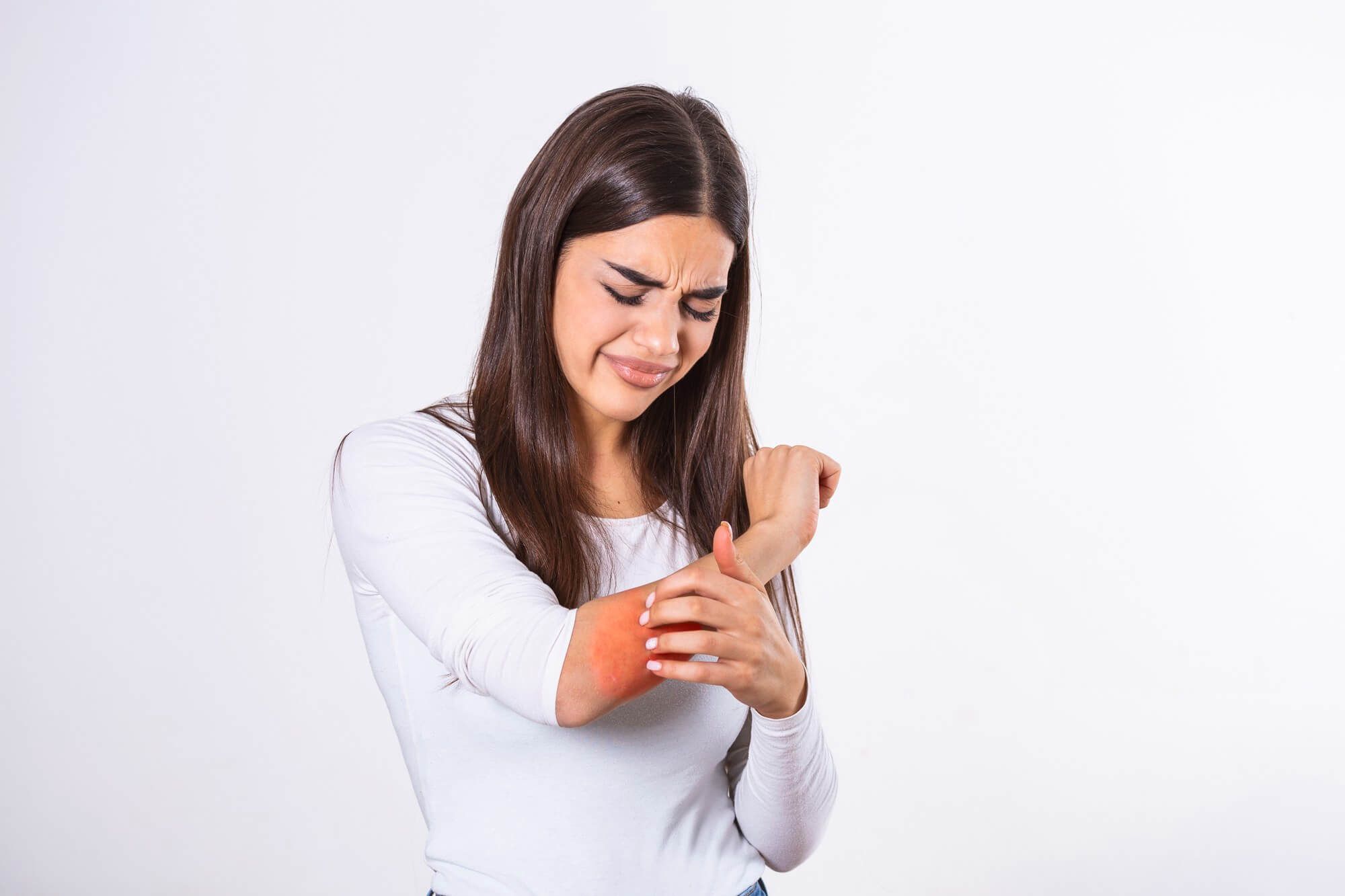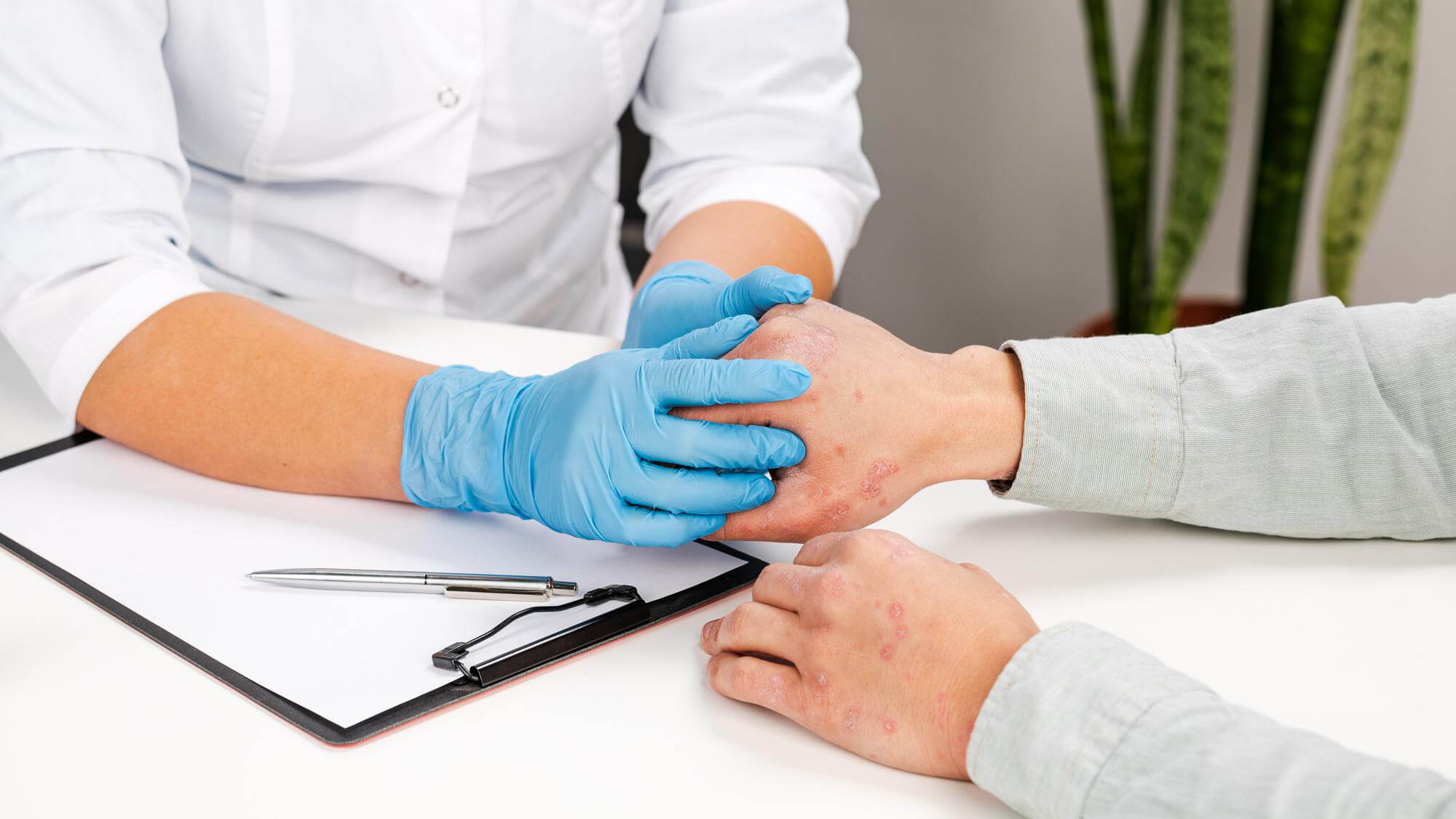How to deal with the itching and discomfort of body eczema


Viktor Levchenko
What is body eczema?
Eczema on the body is a common chronic skin condition characterized by dry, itchy, red and inflamed skin. Eczema can occur on any part of the body and often involves large areas of skin, often resulting in anxiety and discomfort.
Symptoms of eczema on the body
Eczema all over the body appears as red, dry, flaky patches of skin that are very itchy. Sometimes small, liquid-filled blisters may form. When these blisters open, crusts remain on the skin.
Causes of body eczema
Eczema on the whole body can occur for a number of reasons, including genetic predisposition, allergies, stress, the environment, and certain types of soaps or detergents. Eczema can also be associated with other atopic conditions, such as asthma or allergic rhinitis.
Diagnosis of eczema on the body

The diagnosis of eczema is usually made on the basis of a physical examination and history. The doctor will carefully examine the skin, paying attention to characteristic signs and symptoms, as well as gathering information about family history of disease and possible contributing factors to the development of eczema.
- Laboratory tests, including blood tests and skin biopsies, may be needed to confirm the diagnosis. These tests help rule out other diseases and determine the extent of the inflammatory process.
Treatment of body eczema
Treatment of body eczema is aimed at controlling symptoms and improving the patient's quality of life. It is important to avoid known allergens and irritants, and to keep the skin moisturized.
Medication
Corticosteroid ointments and creams, such as Hydrocortisone and Betamethasone, are usually used to quickly relieve inflammation and itching. These preparations are applied directly to the affected areas of skin.
Antihistamines such as Diphenhydramine or Cetirizine help with itching and promote better sleep.
Immunosuppressants such as Tacrolimus or Pimecrolimus may be used for severe eczema. They help control inflammation by suppressing the immune system.
Physiotherapy and treatments
Moisturizing the skin with special ointments and creams, such as Cerevit, and cooling the skin can help reduce itching and improve skin conditions.
Phototherapy, or exposure to ultraviolet light, can be an effective treatment for eczema, especially if the condition is severe.
In closing this article, I would like to emphasize that eczema is a chronic condition that requires a long-term approach to treatment and symptom management. Although a complete cure may not be achievable, with the right approach to treatment and skin care, one's quality of life can be greatly improved. You should remember to consult with your doctor regularly and choose the right medications for your treatment.
Related Materials
New materials
Popular Articles
We recommend reading
Contact us in the Contact Us section to ask questions, offer ideas, or for more information about our allergy resource.
Our articles are your trusted source of allergy knowledge. Learn how to make life with allergic reactions easier on our specialized portal.
©
Lechenie-Allergii.com. All rights reserved.
© Lechenie-Allergii.com. All rights reserved.
The information on this site is for informational purposes only and is not a substitute for professional medical advice. We recommend consulting with qualified medical professionals for accurate information and advice.
 English
English  Українська
Українська  Русский
Русский 









